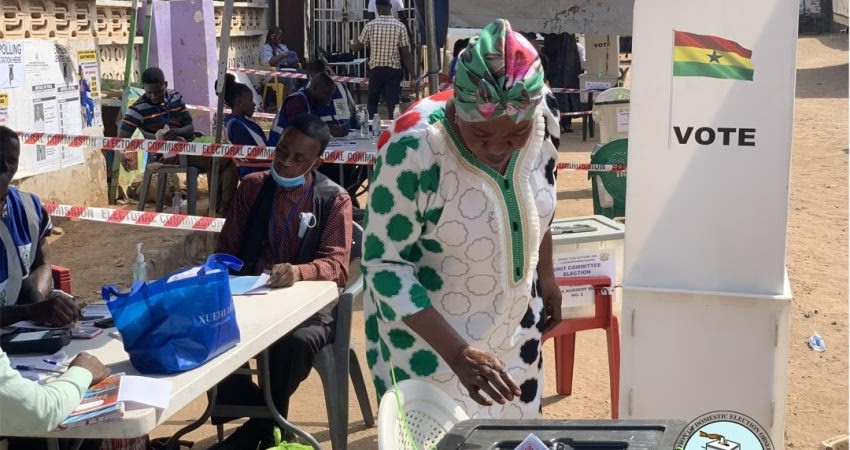Ghana’s multiparty system allows for the formation of various political parties, which is essential for a diverse and representative democracy. However, while this system theoretically provides room for multiple voices, in practice, smaller parties face significant barriers that limit their influence and visibility, reinforcing a two-party dominance by the New Patriotic Party (NPP) and the National Democratic Congress (NDC). Here are some key challenges:
1. Funding and Resource Disparities
- Limited Financial Support: The NPP and NDC benefit from more substantial financial support, including both domestic and international funding sources. They are better positioned to fund large-scale campaigns, advertisements, and organizational structures, unlike smaller parties which often lack consistent or significant financial backing. This financial imbalance makes it difficult for smaller parties to campaign effectively and reach voters.
2. Media Coverage and Public Awareness
- Media Bias: The media tends to focus on the two major parties, particularly during election seasons, largely because they are seen as the main contenders for power. This skewed media coverage reduces public exposure to smaller parties and their platforms, which limits their ability to communicate with the electorate and build recognition.
3. Electoral System Structure
- First-Past-the-Post System: Ghana’s electoral system is based on a “first-past-the-post” (FPTP) model, where candidates who receive the most votes win. This system does not provide proportional representation, meaning that if a smaller party garners a significant portion of the vote, it still might not gain any seats unless it wins outright in a constituency. This structure favors larger, established parties, reinforcing a two-party system.
- Lack of Proportional Representation: Smaller parties rarely gain seats in Parliament because their support is often spread across different regions rather than concentrated in specific constituencies. In a proportional representation system, these parties would have better chances of representation, as seats would be allocated based on overall vote share rather than winner-takes-all constituencies.
4. Political Polarization and Loyalty
- Strong Regional and Ethnic Alignments: Ghana’s political landscape is marked by strong regional and ethnic alignments, with certain areas traditionally supporting either the NPP or the NDC. This long-standing loyalty makes it hard for smaller parties to gain traction, as voters are often inclined to support the established parties aligned with their regions or ethnic groups.
- Polarized Voter Base: Many Ghanaian voters are deeply polarized along party lines, particularly between the NPP and NDC, which further marginalizes smaller parties. This polarization creates a “lesser of two evils” mentality, where voters feel they must choose between the major parties to avoid “wasting” their vote on a party with little chance of winning.
5. Institutional and Logistical Barriers
- Administrative Challenges: Smaller parties face various bureaucratic and logistical hurdles when registering and maintaining their status with Ghana’s Electoral Commission. These requirements, such as maintaining a certain level of activity and membership across the country, can be difficult to meet without sufficient financial or organizational resources.
- Lack of Institutional Support: Government resources for party development, such as public funding or subsidies for campaign costs (found in some other countries), are limited or non-existent in Ghana, making it difficult for smaller parties to sustain themselves over time.
6. Voter Perception and “Wasted Vote” Mentality
- Strategic Voting: Many voters perceive a vote for smaller parties as a “wasted vote” because these parties have little chance of winning in a two-party-dominated system. As a result, voters may choose to support one of the two main parties, even if they are dissatisfied with them, to prevent the “other” major party from winning.
- Perception of Weak Viability: Smaller parties are often perceived as lacking the capacity to win national elections or to govern effectively. This perception discourages voters.



